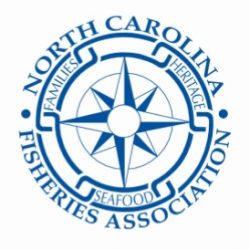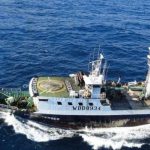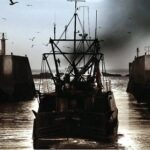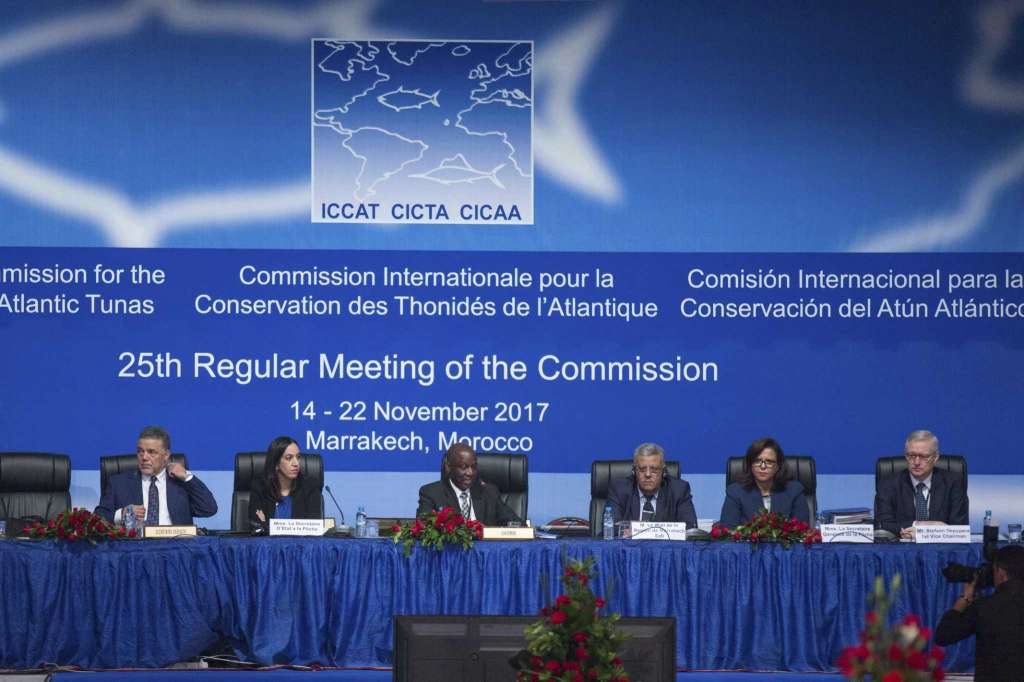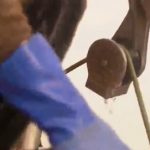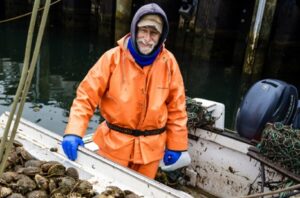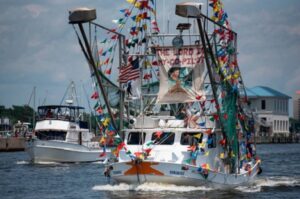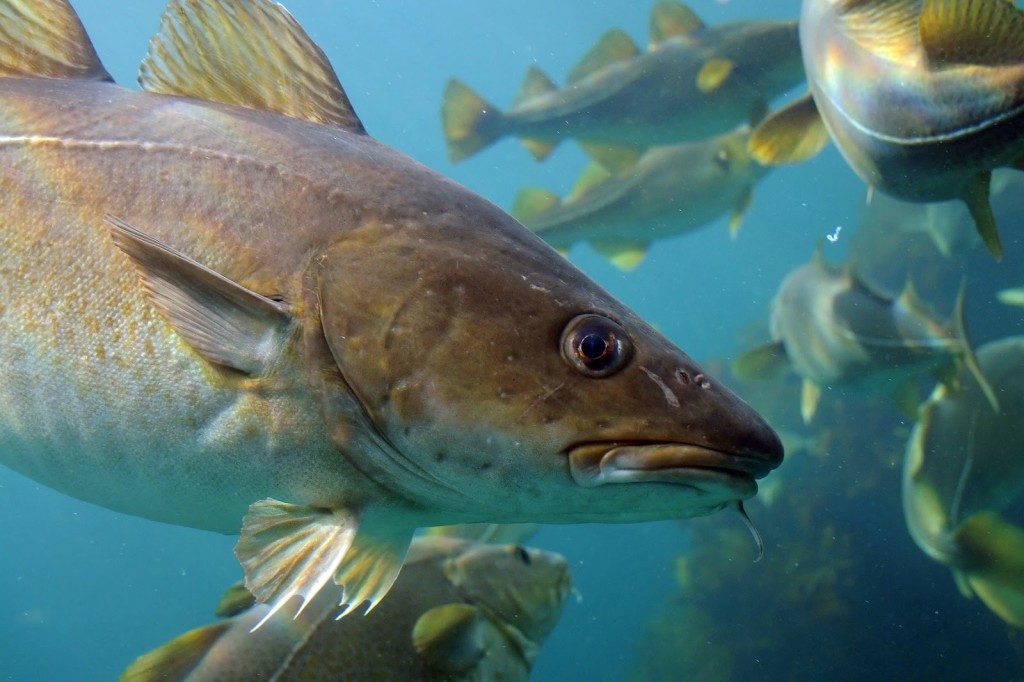North Carolina Fisheries Association Weekly Update, 11/21/2022 – North Carolina MFC Votes More Apples for Me!
North Carolina MFC Votes More Apples for Me!
Last week I attended the November 2022 business meeting of the NC Marine Fisheries Commission (MFC) and below are my thoughts on a couple of key issues on their agenda. Bear in mind I have not gone back and listened to the meeting, so I am relying solely on my recollection from last week. Thankfully, it’s only been a couple of days so my percent standard error (PSE) should be much lower than the bi-monthly mail survey the State used to estimate the recreational harvest of Stiped Mullet!
Night one of the meetings began at 6pm with comments from the public, mostly recreational anglers and mostly focused on one issue, the net ban in the Upper Neuse and Pamlico Rivers. The takeaways from the recreational comment were, North Carolina fisheries have gone to hell in a handbag, (except for the Upper Neuse and Pamlico thanks to the net ban) the States to our South have fisheries management figured out, and more net bans will equal more fish. None of which is supported by data, but neither was the implementation of the net ban, or the results of several recent stock assessments so, why should that matter? After public comment, Woody Joyner, President of NC Waterman United, and I were discussing the commenters assertion that since the net ban the fishing had improved. I told Mr. Joyner that, unlike most of their claims, this one may be true and used the following analogy to explain.
Imagine that Mr. Joyner and I share a property line and, on that line, stands an apple tree. Mr. Joyner and I have a gentleman’s agreement that all the apples on his side of the tree are his and those on my side are mine, and for years we both enjoy an abundant harvest. Then, one year I hire a surveyor to survey my property and it’s determined that the apple tree is entirely within the boundaries of my property and new lines are drawn. Now, simply drawing a line Mr. Joyner couldn’t cross did not increase the amount of fruit on that tree, but it did, without a doubt, mean more apples for me!
Simply put, both the intent and result of removing the nets were reallocation, “more apples for me”, nothing more. This conclusion was supported by comments from both members of the Commission and DMF staff the following day. Division staff concluded that the angler’s perception of more fish was most likely just more fish for me and the result of them now catching, the fish they had traditionally caught in addition to the fish traditionally caught by commercial fishermen, not increased abundance. DMF staff also pointed out that in the 3+ years since the implementation of the net ban and harvest moratorium, data collected from the independent gill net survey, has shown no expansion of either the abundance of Striped Bass or the age structure of the stock. In fact, as I recall these indices were now the lowest, they’ve ever seen.
In response to their comments, MFC Chairman Rob Bizzell questioned whether they would normally see increases in abundance and age structure in just 3 years and quite frankly I was disappointed in the response or lack thereof. The truth is, abundance is directly affected by recruitment (reproduction) which is highly dependent on environmental factors and therefore is almost impossible to predict or manage, the same cannot be said for age structure. Age structure is a direct result of the survival of existing fish, in this case two strong year classes of Striped Bass which were three to four years old at the time the net ban was adopted. Each year these fish survive increases the age structure by one year meaning, if the management actions increased the survival rate, 3+ years of management would have resulted in the age structure expanding to include fish of 6-8 years of age.
If the nets were the problem, where are the older fish?
With the nets out of the water, recreational catch and release mortality has to be the dominant source of mortality, as all harvest has been eliminated and natural mortality decreases with age. Unfortunately, these points were not driven home by the Division.
To sum it up, in 2019 the data provided to the Commission pointed to recreational discard mortality being more significant than gill net discards and the data collected since, certainly seems to support that conclusion.
Despite all of the information suggesting that the net ban has not increased survival in this fishery and was never supported by science in the first place the MFC chose to extend the net ban two more years claiming more data was necessary to assess the results. That’s right, the Commissions approach is to remove the nets in hopes that somewhere down the road the data will justify their actions!
So much for fair management!
Another issue of great importance to commercial fishermen was taken up by the Commission last week, the supplement to the Striped Mullet FMP. On this issue the data was not nearly as clear as with the net ban.
In fact, the most recent stock assessment for Striped Mullet which indicated the stock was overfished with overfishing occurring is, in my opinion, as data poor as any assessment I’ve seen. This probably explains the dramatic difference in results from the assessment completed just 4 years earlier which showed the stock was not experiencing overfishing. You’re probably thinking that it’s entirely possible that overfishing could have occurred over the 4-year period between assessments and, if so, you’d be right but that’s not what the recent assessment shows. The new assessment shows that there is a 80% probability that overfishing has been occurring for nearly two decades. You’re probably wondering how four new years of data changed the stock status for two decades and you’re not alone. After looking at the assessment, my best guess is that it’s not the last four years of data but the overall quality, or lack thereof, of the data that’s creating the high degree of uncertainty. While the drastic difference in the results of these two stock assessments has certainly raised some eyebrows, even more concerning is the fact that the most recent assessment results don’t seem to match what’s occurring in the fishery. Fishermen are reporting more and larger mullet in our states waters and commercial landings are increasing. According to Division staff, their independent surveys also seem to be showing signs of improvement which is telling to me given the extreme limitations of these surveys. I’ve always said that a high degree of uncertainty should always slow down decision making, not speed it up, but with fisheries management, at least here in NC, that’s seldom the case.
The Commission ignored the uncertainty, choosing not to look at the most recent three years of data before acting, and voted to close the harvest of Striped Mullet on November 7, 2023, through the end of that year, a 22% reduction in commercial harvest. This season closure will remain in place until an Amendment to the FMP has been approved, at which time it can be incorporated as part of the amendment or replaced by other management measures.
On the net ban issue there was absolutely no data to support the adoption or continuation of the measure, but the Commission moved forward with both, supposedly in search of new data. On the other hand, with Striped Mullet, there was already new data, suggesting things aren’t as bad as the stock assessment showed, but they chose not to consider any new data and, once again, cut commercial access to our fisheries resources. Damned if we do and damned if we don’t!
It’s obvious to me that a majority of this Commission has a much different interpretation of our states statutes than I do, or they have chosen to ignore those statutes and arbitrarily regulate based solely on their own will. Maybe an interpretation of those statutes is necessary to clear up this confusion.
Fortunately, there are those Commissioners who are trying to fairly manage our fisheries, despite being outnumbered and constantly attacked. One such Commissioner, Sarah Gardner, made it clear that she intended to do the right thing no matter what the cost. Her passionate words gave new meaning to the outdated phrase “the fairer sex” and shined, much needed, light on the true issues hampering North Carolinas fishery management process. I applaud her nerve and conviction and encourage all Commissioners to follow her example.
Unfortunately, the personal attacks against her have already begun and will certainly continue until she complies with the CCA agenda or quits. I urge Sarah to hang in there, stick to her guns, follow her heart, and avoid the more apples for me mentality!
Glenn Skinner
NCFA-Executive Director
LEGISLATIVE UPDATE: 11.21.2022
GENERAL ELECTION RESULTS
The computer files for the NC General Assembly have been updated to reflect the results of the recent election. Next will be the addition of email addresses and committee assignments but that info won’t be available for several weeks. In the meantime, we attempt to get into holiday mood, as in happy, jolly and positive. That is difficult if you’re in the fish business, but spiritually important. It would help our attitudes greatly if the Marine Fisheries Commission didn’t meet so close to Thanksgiving. That crowd can sure take the jolly out of an otherwise joyous season.
Regardless, there’s much to be thankful for!
God bless, and Happy Thanksgiving!
Jerry






